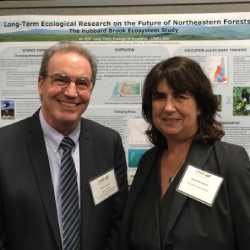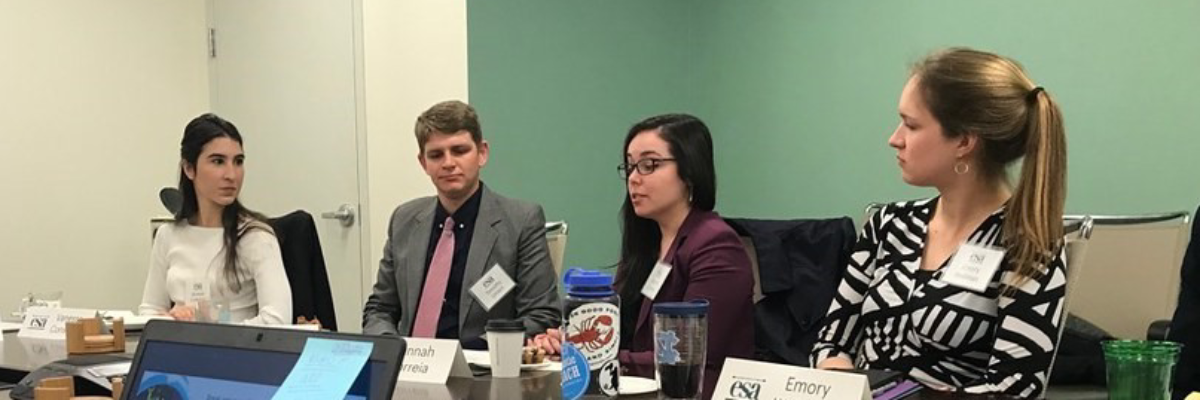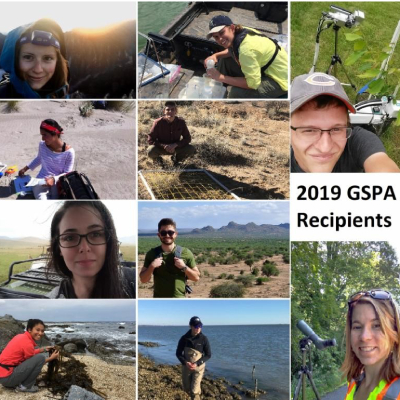Advocating for Ecological Science
Bringing Ecology into Policy Decisions
ESA works to infuse ecological knowledge into national policy decisions, engaging in science policy efforts to inform policy affecting the ecological community and foster support for research and STEM education. We connect our members with policymakers and join with other scientific associations to amplify its messages for policymakers through membership in coalitions, including the Climate Science Working Group, Coalition for National Science Funding, USGS Coalition, NDD United, and National Environmental Coalition on Invasive Species, the Energy Sciences Coalition, the STEM Coalition, the Agriculture and Food Research Initiative (AFRI) Coalition and Friends of the Agricultural Research Service Coalition.
Policy Letters and Statements
ESA issued or co-signed more than 40 letters or statements to policymakers last year. Topics covered include federal funding for scientific research, support for specific pieces of legislation and the importance of keeping the federal government open to science. ESA also joined with other scientific societies to submit information to the House Select Committee on the Climate Crisis and to raise concerns about increased scrutiny of foreign influence in science. Several policy statements garnered press as news outlets looked toward scientific societies to contextualize new policies.
Coalition for National Science Funding Congressional Exhibit Highlights the Importance of NSF, Funding for Basic Research

Gary Lovett and National Science Board Chair Diane Souvaine at the 2019 Coalition for National Science Funding exhibit.
Scientists representing over 40 scientific societies, universities and research organizations shared their NSF-funded science – and the importance of science funding – with members of Congress, their staff and other stakeholders during the Coalition for Nation Science Funding’s 25th evening exhibit. Gary Lovett, a senior scientist at the Cary Institute of Ecosystem Studies, represented ESA and shared research from the Hubbard Brook Long Term Ecological Research site in New Hampshire, a member of the NSF-funded Long Term Ecological Research network. Hubbard Brook’s scientists use long-term observations, large-scale experiments, and computer simulation models to study the ecological impacts of acid rain on forest ecosystems, songbird population trends, ice storms and more.
Graduate Student Policy Award

GSPA recipients introduce themselves during the GSPA training day in ESA headquarters.

The 2019 Graduate Student Policy recipients in the field.
ESA brought 10 Katherine S. McCarter Graduate Student Policy Award (GSPA) winners to Washington, DC in April. This annual award provides graduate students in ecology with the opportunity to learn about policy and federal science funding and gain experience engaging in policy and communicating their science. Ten students were selected for this year’s award: Kristina J. Bartowitz (University of Idaho), Vanessa Constant (Oregon State University), Hannah E. Correia (Auburn University), Brett Fredericksen (Ohio University), Sara Gonzalez (University of California, Santa Cruz), Emily Kiehnau (University of Oklahoma), Charlotte R. Levy (Cornell University), Timothy J. Ohlert (University of New Mexico), Christopher Kai Tokita (Princeton University) and Emory H. Wellman (East Carolina University).

GSPA recipients Charlotte Levy (Cornell University) and Chris Tokita (Princeton University) met with staff from the office of Sen. Chuck Schumer (D-NY).
GSPA winners met with the offices of 30 members of Congress to request $9 billion in funding for the National Science Foundation (NSF) in Fiscal Year 2020. They highlighted how federal investment in scientific research, specifically related to NSF’s biological sciences directorate, benefits the constituents the lawmakers represent.
Capitol Hill Climate Science Day
The Climate Science Working Group (CSWG) held its 9th annual Climate Science Day (CSD), an annual event that brings scientists to Washington, DC to meet with their members of Congress to discuss climate science. As a member of the CSWG, ESA worked with other scientific societies to plan and execute the two-day event in March, which serves as a non-partisan opportunity for scientists to educate and build relationships with congressional staff.
ESA member Matthew Hurteau of the University of New Mexico joined nearly 20 other scientists whose work relates to various aspects of climate science to participate in CSD this year. This year’s Climate Science Day was particularly timely with many new members of Congress interested in climate science and policy.
Rapid Response Team
ESA reinvigorated and expanded the Rapid Response Team (RRT) in 2019, adding around 20 new ESA experts to the group. These members have committed to serve as resources for policymakers and the media and provide on-call ecological expertise. RRT members assisted ESA in commenting on revisions to the Clean Water Act regulation and the proposed changes to the Roadless Rule in the Tongass National Forest.